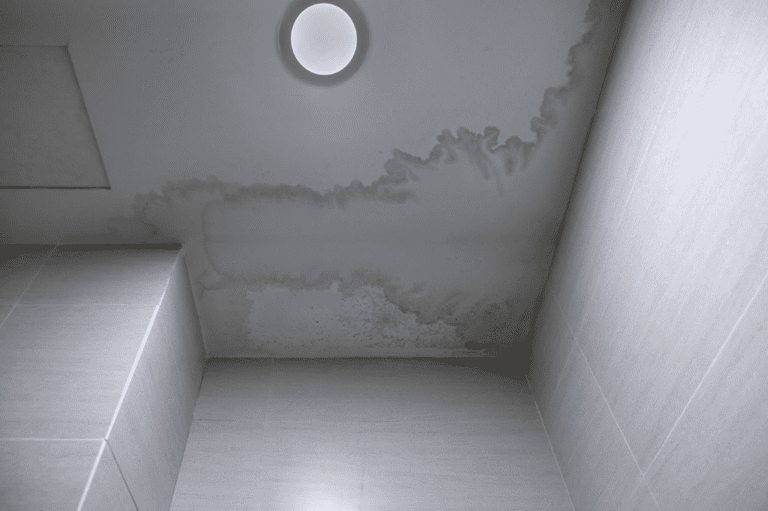Water damage can have devastating effects on your home and property. Moisture in your home can cause mold growth which can be dangerous if not taken care of quickly. Prevention is the best way to avoid a water problem, but if one does occur, it’s essential to address it immediately. Mold can start to form in as little as 24 hours, so cleaning up any water damage and sanitizing the area is necessary. Doing this will help to prevent contamination and keep your home safe.
What Is Mold?
Mold is a type of fungus that reproduces through small spores. It can come in colors like white, pink, green, brown, and orange; the most dangerous is black. Mold has a distinctive, musty odor and grows in dark, damp, and moist areas like basements, under sinks, behind walls, doorways, and corners. It also grows on ceilings because warm air tends to rise.
Mold grows best in places with poor insulation and high humidity, such as bathrooms and attics. Hot showers should always be done with the fan on or a window open to prevent mold from growing. In nature, mold is beneficial as it helps break down organic material, but not when it begins to grow in your home.
Does Water Damage Always Cause Mold?
To prevent the growth of mold, it is important to act quickly to clean up any spilled liquid. Even a tiny bit of water can cause a large problem, as mold needs only a small amount of moisture to start a colony.
Mold can grow all year round and is not influenced by the season. It only needs three things to thrive: starch or sugar, oxygen, and moisture. If any of these three elements are present, mold will begin to spread, making it essential to promptly address any water damage to avoid this dangerous fungus’s growth.
How Dangerous Is Mold?
It’s a definite yes that mold, specifically black mold, can cause long-term health complications like wheezing, coughing, eye irritation, hay fever symptoms, and even vomiting or rashes. Those who already suffer from allergies or asthma can be especially vulnerable to the effects of mold.
Mold spreads quickly and easily, with tiny spores being carried through the HVAC system and into every area of your house. It is a health hazard and can damage your home’s structure by eating away at organic materials like walls, cabinets, and insulation.
If left unattended, the mold can cause serious damage to your health and home. Therefore, it’s important to take mold seriously and seek professional help to remove it and protect yourself and your family.
How Do You Prevent Mold From Water Damage?
To stop the spread of mold, act quickly and decisively. Shut off any water sources that may be leaking and open windows or turn on a dehumidifier to reduce moisture in the air. Discard any wet rugs, carpets, or furniture. Take photographs of the damage to use when filing an insurance claim. Get help from a home protection specialist to inspect your home, check insulation, and look for any possible leaks. Long-term prevention is key to keeping your home free of mold.
Conclusion
Water damage does not always lead to mold growth. However, if the conditions are right, then it is likely that mold will grow. To prevent mold growth, moisture, and humidity levels should be monitored, and any signs of water damage should be addressed immediately. In addition, materials that can be damaged by water should be treated with waterproofing agents, and any excess moisture should be promptly removed. By taking these preventive measures, one can greatly reduce the risk of mold growth following water damage.
Sentry Restoration takes care of all your cleaning and restoring needs, including crime scene cleaning, biohazard cleaning, water damage restoration, fire and smoke restoration, hoarding cleanup, and water damage restoration in Athens, GA. Get in touch with us today and let us know how we can help!



